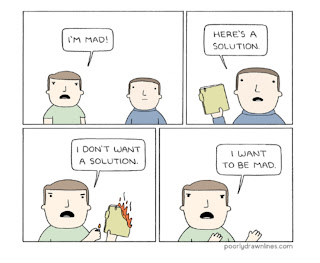The Yin and Yang of Love and Adversity
They say there are two forces that can influence you to maximize your potential-Love and Adversity.
Love, if it happens to soak you, can stretch you to do your best. Remember the movie Cinderella man-which lets an aging Russel Crowe fight and win the boxing match with a boxer half his age, just so he can feed his family ( watch Cinderella Man, if you haven’t watched it already)
Adversity also can make you reach your highest potential. People who have suffered adversities, setbacks, and trauma have come out richer from their experience if they have endured it and risen up to the challenge to survive.
Remember, everything comes with a disclaimer! So love or adversity is also good in moderation
Too much love can make you-
- Lazy or
- Crazy
Too much adversity can cause
- PTSD
- Depression
- Suicide
Adversity Hypothesis
Jonathan Haidt in his book ‘The happiness hypothesis’ writes about the adversity hypothesis and its strong and weak forms. I think his description of the weak and strong forms has been inspired by the weak and strong forms of market efficiency theories.
So, what is the adversity hypothesis?
The adversity hypothesis says that people need adversities and setbacks to reach their full potential. Remember Neitzche- ‘what doesn’t kill you makes you stronger’.
If you can rise up to the challenge and make your way through those difficulties it adds resilience to your character. People also discover their potential that was until then hidden to them. This gives a certain self-confidence when they know what they are truly capable of.
None of us know what we can endure..until we endure!
There are two forms of adversity hypothesis:
- Weak form
- Strong form
The Weak form says adversity leads to growth, strength, self-improvement, and consequently joy from the conquered pain and discovering a new self. There is a word for it-’Post Traumatic Growth’- it is the growth that you achieve by rising up to the challenge and thriving after. The weak hypothesis is found to be true and is well supported by research
The Strong form is a bit more controversial. It says that the highest growth is ONLY possible for those who have suffered and overcome adversity. It's like saying if you have not seen the worst, you may not be at your best.
Well, the strong form certainly encourages us to take more risks! Let us all be more adventurous and not worry too much about defeats and setbacks.
The strong form also comes with a lot of caveats. Here are some:
- Early childhood adversities can be damaging, as children are vulnerable and need a safe environment for proper brain development.
- Adversity may be most beneficial for people in their late teens and twenties, who are more likely to bounce back.
- People with a support group, a positive mindset, and religious faith are more likely to overcome adversity.
- Adversity should be in moderation, as extreme setbacks can cause PTSD or depression.
Finally, life is a mix of love and adversity, both of which help shape who we are. Here is a beautiful prayer to help you
“ God, grant me the serenity to accept the things I cannot change, courage to change the things I can, and wisdom to know the difference”
Here is a template I made on Canva for this post
Interestingly, I fed my blog post to chatGPT and asked it to write a poem about it. Here is what it wrote. Quite impressive I must say!
Of Love and Adversity: A Hypothesis in Verse
In realms where mortal souls do dwell,
Two forces, potent, cast their spell.
The first, a beacon, Love by name,
Ignites the heart with ardent flame.
The second, Adversity, dark and dire,
Forges resolve through trial by fire.
Love, that sweet and gentle force,
Guides our lives and charts our course.
A balm to soothe the troubled mind,
In Love, our truest selves we find.
Like Cinderella Man of yore,
Who fought for those he did adore,
Love's embrace, when it enfolds,
Inspires feats both brave and bold.
Yet Adversity, with visage stern,
Has lessons of its own to learn.
For those who brave its stormy seas,
Find strength and growth in times like these.
Though harsh the winds that buffet sore,
They shape the soul to rise once more.
For Nietzsche's words, both wise and true,
Declare, "What fails to kill, renews."
But hark! A caveat, a plea,
For moderation is the key.
Too much of Love, that gentle art,
May render idle mind and heart.
Or drive to madness, wild and free,
The soul consumed by ecstasy.
And Adversity, when pressed too far,
May leave behind a lasting scar.
Depression, trauma, thoughts forlorn,
May burden those too harshly worn.
So tread with care, ye seekers bold,
For life's extremes may yet take hold.
Behold, the Adversity Hypothesis,
A notion born of life's duress.
In forms both weak and strong, it stands,
To guide the heart and shape the hands.
The Weak, it speaks of growth and gain,
Of joy that springs from conquered pain.
"Post-traumatic growth," they say,
A truth that's proven, come what may.
The Strong, more controversial still,
Demands a firmer test of will.
It claims the greatest growth is found
By those who've trod on hallowed ground.
Who've faced the dark and seen the light,
And risen, phoenix-like, in flight.
Yet Strong, with caveats, is fraught,
For some are vulnerable in thought.
The child, whose mind is yet unformed,
May find their world by strife deformed.
And some, with faith and friends to guide,
May weather storms that do betide.
So let us pray, as wise ones do,
For serenity to see us through:
"O God, grant me the strength to dare,
To change the things within my care.
The peace to leave what can't be changed,
And wisdom's light, so long estranged."


Comments